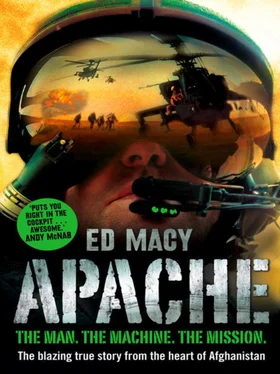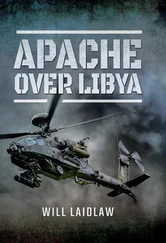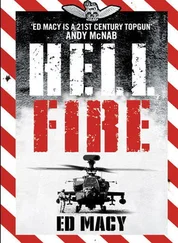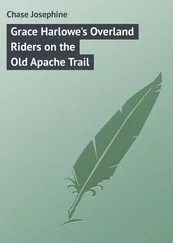It was the final straw. Both of us were expelled and sent to different schools. We were split up for the first time in our lives.
I missed my brother terribly. My new school was a rough one and when I was goaded I fought back. I spent most of my time there fighting all comers – alone. Six months into it, I started missing lessons. In my last year I rarely went at all.
Mum was too busy running a pub so I wasn’t missed at home. I’d often spend weeks away, sleeping wherever I liked. The woods were my favourite place, and I lived by stealing food and poaching fish to sell to local pubs. I was turning wild.
On my sixteenth birthday, I was old enough to choose who I lived with, and Dad was waiting with a big smile on his face. He straightened me out, forced me to use a knife and fork again, to keep myself clean, and eventually got me a metalworker’s apprenticeship.
I enjoyed training to be an engineer and wanted to be like Dad, but I hated the job. I was trapped indoors in a routine life I didn’t want. At night, I’d drink and fight.
Dad remarried and got the person he always deserved; I got three new brothers as part of the deal. They were great lads and all of them joined the army. I’d found my way out.
Two months after my eighteenth birthday, I enlisted in the Parachute Regiment. I didn’t particularly want to be a soldier, and I only asked for the airborne because The Paras was on TV at the time. It looked like a good challenge.
‘You’ll never pass, son. You haven’t got what it takes,’ my dad said. It was a textbook case of reverse psychology, but I didn’t recognise it as such at the time. It gave me all the determination I needed to pass P Company.
I was posted to 2 Para. I got one hell of a kicking as a crow – military slang for a junior paratrooper – but everybody did in those days. It was the 1980s, and the battalion was full of hard men with droopy moustaches who’d fought at Goose Green during the Falklands War.
Once my bust nose, dislocated jaw, three broken ribs and split testicle had healed, I fell in love with life as a paratrooper – surprising everyone, myself the most. After a couple of years and a six-month combat tour to Enniskillen fighting the IRA, I won promotion to lance corporal.
But I was still an angry young man, and getting into too many fights. I never started them, but I always had to be the one to finish them. The red mist would descend and I could never back down. I even once flattened an RMP sergeant who wound me up on a train, and had to do fourteen days in the regimental nick.
After promotion to full corporal and with the promise of sergeant’s stripes if I could keep out of trouble, I began to take my military career a little more seriously. I wanted to challenge myself at the highest level, so I began to prepare for SAS selection.
Months of hard, self-imposed training followed, but my ambitions came to a sudden end one night in Aldershot during a gruelling bicycle ride in the pouring rain. I’d let half the air out of the tyres to make the pedalling twice as hard. A Volvo clipped my handlebars on a main road, sending me careering across the road and under the wheels of an old man’s oncoming car. My head hit the bumper and my feet peeled round and went through the windscreen, before the bloke drove over my right arm and shoulder. My heart stopped in the ambulance on the way to hospital.
In the days that followed, I learned the true meaning of pain. During one operation I was handcuffed to a bed and a vice-like clamp was strapped around my haemorrhaging kidneys for half an hour to squeeze the blood out of them.
It was six months before I put on a uniform again and nine before I could run. I was no use to the Paras any more; my bust shoulder, spine, hips, knees and ankles could no longer bear any real weight. My front-line fighting career was at an end, and I was devastated. I had lost my purpose in life and was forced to abandon all my dreams of SAS selection. My gloom deepened as I contemplated my lack of a future – until a mate suggested the Army Air Corps. If I couldn’t fight on the front line, perhaps I could fly people to it instead. Perhaps I could even fly for the SAS.
Then came a stroke of luck – my doctor lost all my medical records. Suddenly, and against all expectations, I stood a chance of passing the Army Air Corps’ stringent medical with my battered body.
I was accepted, and came top of my class at flying school. I had to – it was my last chance. I loved flying and the freedom it gave me and I relished playing my part in battle formations. But I hated flying routine ass and trash flights, so whenever anything interesting came up, I went for it. It was always about the next challenge – it always has been.
I got a place on a reconnaissance squadron, flying Gazelles. Five years later, I began to fly for the SAS, hunting down war criminals in the Balkans. The work was amazing, the most exciting I’d ever done.
Something else happened in Bosnia. In late 2002, I met Emily. She was a nursing officer in the RAF. After a night out in the local town, I hitched a lift back to base in the back of the same Land Rover. In thick fog, the vehicle left the road, flipped and rolled down a bank into a muddy irrigation ditch. Emily was trapped in the back, under four feet of water. I pulled her out.
I went to see her in hospital the next day. I was single again – I was the proud father of two children by two previous relationships, but neither had worked out. Emily was a pretty blonde Scot, and as sharp as she was funny. She was way out of my league and we both knew it. By the end of the week, I’d decided I wanted to spend the rest of my life with her.
But Emily wasn’t convinced. At least she was honest with me.
‘Listen Ed, I don’t date full stop. If I did date, I certainly wouldn’t date a Pongo. And If I did date a Pongo you can bet your life I wouldn’t date a flyboy Pongo. So why don’t you quit with your pride intact?’
‘Aha – so that’s not a no…’
It took some time, but eventually we became an item and have been together ever since. Emily’s forces background was both a good and a bad thing. It meant she knew the pressures of military life, and to expect long periods of separation. It also meant she knew the real risks of military flying, and the chances of me not coming home.
The British Army’s much hyped attack helicopter programme had been in the pipeline for years. In 2002, it finally came online. Of course I had to be on it. It was the closest I could ever get to being in the front line again. I bent every rule in the book to make sure I was posted onto the very first Apache conversion course and Emily didn’t try to stop me. Before I got there, I read up everything I could about the amazing new machine.
The Apache AH64A was initially designed by Boeing for the US government in the 1980s for the giant battlefields of the Cold War. The Pentagon wanted something to take out Soviet armour the moment it rolled across the West German border.
Following the US military tradition of new aircraft honouring Indian tribes, the Apache was not just the next generation attack helicopter. It was the hunter-killer supreme for all future wars. Its surveillance capabilities far outstripped anything its predecessor the Bell AH1 ‘Huey’ Cobra had, and its destructive capability was without precedent.
It looked very different to any previous attack helicopter too. The smooth aerodynamic curves and contours of the Sixties and Seventies were replaced with the hard angles and mean edges of the very first anti-radar – or stealth – technology.
It was also larger: 49 ft 1 in. from the tip of its nose to the back of its tail, with its rotor blades reaching a further 8 ft. It stood 17 ft 6 in. tall and 16 ft 4 in. wide, and weighed 23,000 lb fully laden – 10.4 tonnes, or 140 fully grown men.
Читать дальше
Конец ознакомительного отрывка
Купить книгу












